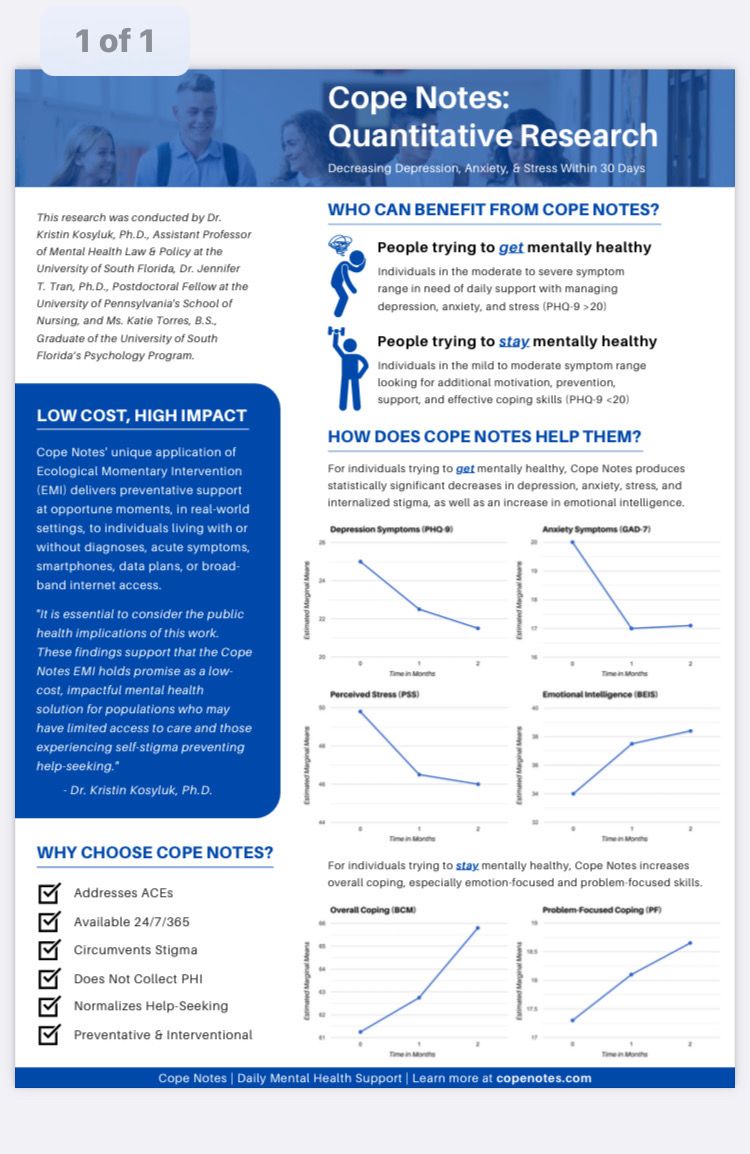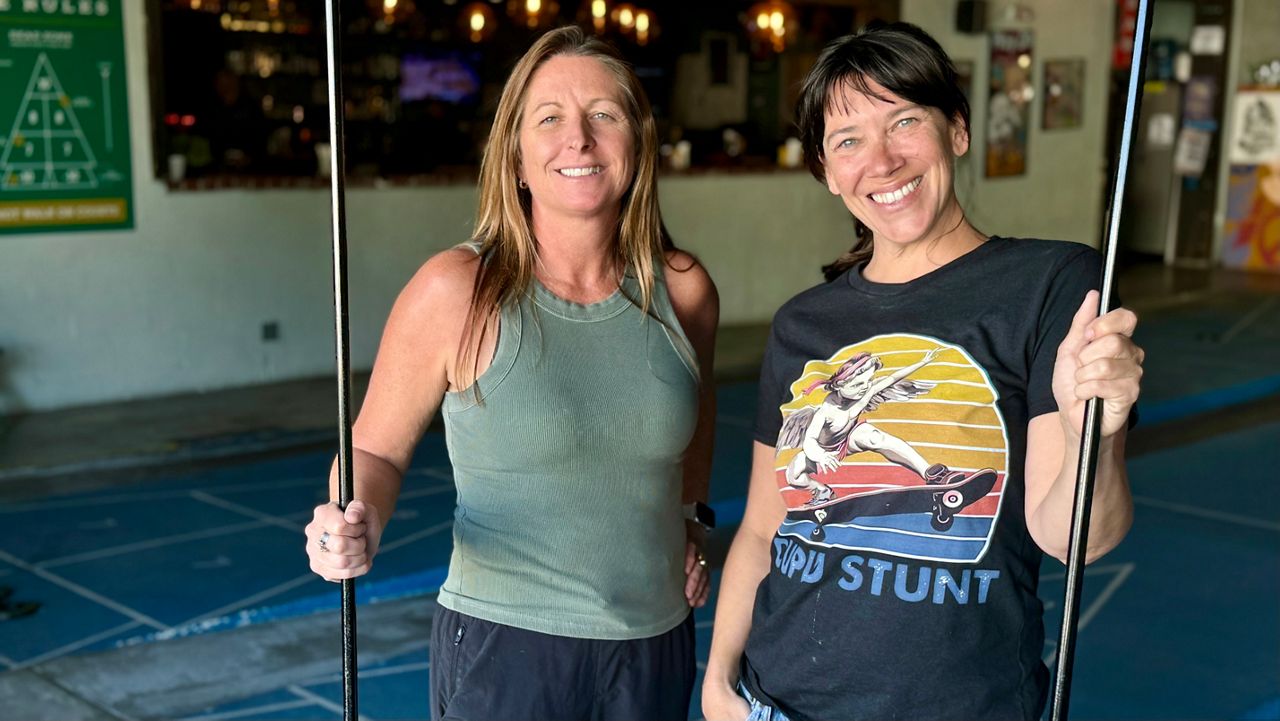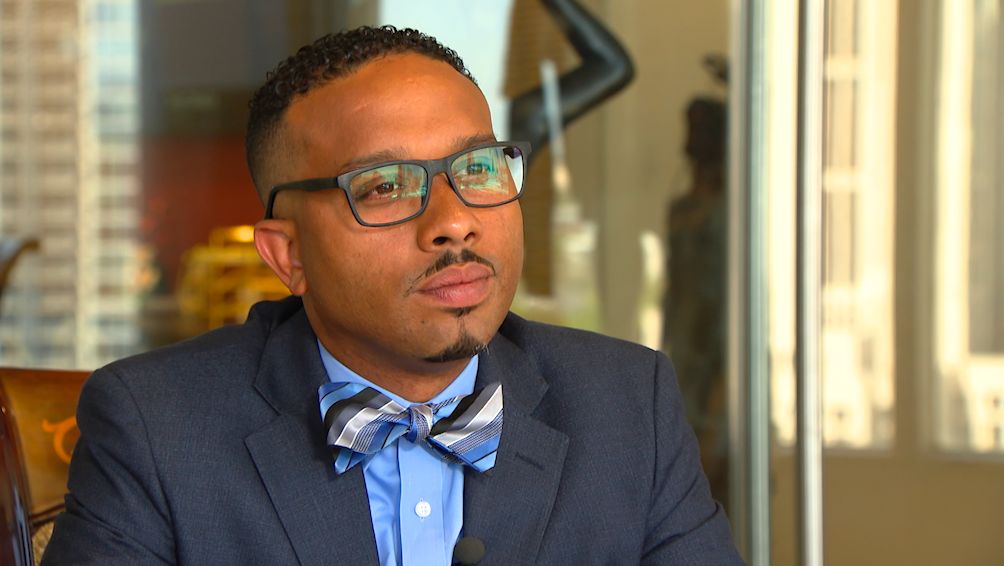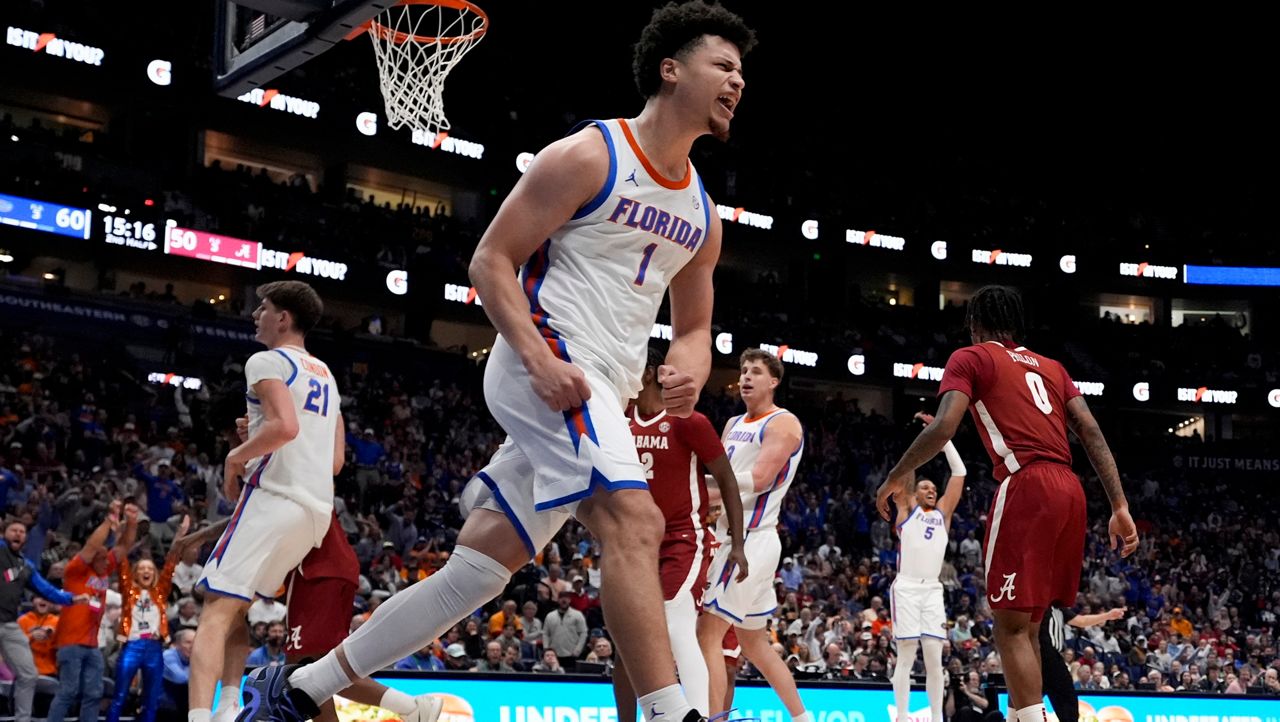PINELLAS COUNTY, Fla. — Thirty-year-old Johnny Crowder has a personal connection to music.
“It feels like it’s always there for me and there’s always a song to complement whatever I’m feeling, and I can’t think of a lot of other things like that,” said Crowder. “My guitar does not judge me.”
What You Need To Know
- Thirty-year-old Johnny Crowder founded Cope Notes, a company that offers mental health support through daily text messages
- Crowder says life experience inspired the idea
- Research recently released by University of South Florida Assistant Professor Dr. Kristin Kosyluk found Cope Notes is effective in helping others
Crowder plays music personally at home, and then takes his voice on the road with his band, Prison.
“A lot of our music is about mental health, recovery, suicide awareness and even sexual consent and sobriety and loss.”
Johnny shares his lived experience with audiences through his music and messages on stage, including when he was convinced suicide was a solution.
“A lot of my times when I was very convinced that suicide was going to be a good solution for what I was going through, looking back I realized I associated death with rest and I really just wanted rest, I wanted a break from feeling like a failure, from feeling unloved, from feeling like life wouldn’t get any better. I just wanted a break,” Johnny shared.
Crowder’s message is also shared from his home office, where he works for a company he founded.
“We use daily text messages to improve mental and emotional health,” Johnny explained.
The Oldsmar native who studied psychology works on an intervention he founded called Cope Notes.
“We’re sharing psychology facts, we’re sharing journaling prompts, exercises, so this is like actionable health information,” Crowder said.
Crowder says life experience inspired the idea.
“I was living with really debilitating for a long time, so depression, anxiety, really severe OCD, schizophrenia, PTSD, all different diagnoses piled on top of each other,” explained Crowder.
He said he needed support to help fill the gaps between therapy sessions.
“Even if I had a great therapy session, I was like, thrown back out into the world,” he said.
Research recently released by University of South Florida Assistant Professor Dr. Kristin Kosyluk found Cope Notes is effective in helping others, too.
“To have a simple intervention that you don’t have to give any thought to that actually does potentially bring some benefit in terms of mental health was really important to people,” said Kosyluk, who is with USF’s Department of Mental Health Law and Policy, and also serves as director of the Stigma Action Research Lab.
“Before using cope notes to after using cope notes for a month, and then even two months later, people that were experiencing severe depression or anxiety experienced a reduction in symptoms.”
The research also found that another benefit of Cope Notes was normalizing mental illness.
“It could be that Cope Notes could be a first step to reduce stigma among users so that if they were previously reticent to seek treatment from a licensed mental health professional, after using Cope Notes for a while, they may be more willing to do that,” explained Kosyluk.
Crowder, a certified recovery peer specialist, hopes the research will help convince critics that the technology can help.
“Now, when those governments or school districts say, ‘Well, where’s the real research?’ Now we can point to the study,” said Crowder. “The first thing you think of is how many other people are going to be impacted by this.”
Prison is playing in Orlando on Oct. 22. Find additional information here.










